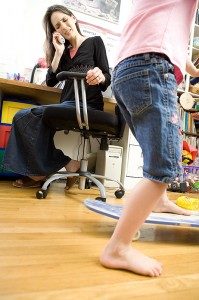 Much more than 10 parenting tips to reduce your stress and get you from a to z!
Much more than 10 parenting tips to reduce your stress and get you from a to z!
What? Nobody gave you a manual giving you the abc’s of parenting and stress management when you gave birth to your bundle of joy? Why stop at 10 parenting tips—let’s give you the full alphabet! Here’s something for you to print out, pin up, and read everyday!
A- Accept the things you can not change: Single parenting? Step parenting? ADHD parenting? Just dealing with time crunches, making lunches, bunches and bunches of bills? It is important to recognize that there are some things you can not control, surrender, move on and…
B- Breathe: We know it is involuntary and yet sometimes it just takes so much effort! When things get hairy, scary, and you feel like you can barely hold, on, take a step back, breathe, and be calm.
C- Count your blessings: I’m not saying that you should think about all the bad things that are happening to everyone else and somehow feel grateful and lucky that they aren’t happening to you. That’s not productive. But there is some value in taking a moment to look at the things that are going right today…like your child gave you a sweet kiss on the cheek, your toddler ate all his peas and your spouse actually didn’t leave the dirty dishes in the sink.
D- Decompress: This may take some practice. It may even take some assistance. Giving yourself time to take a break, read a book, go out, have a little family fun, is important to your whole family. A happy parent is much more productive than a crabby one.
E- Eat good food: We take care of everyone else but ourselves. We run from one activity to another, picking up, dropping off, and getting dinner ready for the kids in between. What about you? Eat breakfast! Stop for lunch! Nourish your body so you can nourish your mind so you won’t go crazy on top of everything else.
F- Focus on the big picture: Does it really matter that Johnny wants to wear his Spiderman pajamas to the market…again? Let’s focus on the fact that Johnny at least got out of bed without too much of a fight this morning, brushed his hair (kind of) and told you that you were “awesome” even before you drank your first cup of coffee. Not bad. So, when choosing between sanity and Spidy, choose sanity, OK?
G- Go to the gym: Or to yoga or for a simple walk out the door. There is fresh air out there! It is important to clear your mind and work on you so that you can stay healthy and fit. How else are you going to keep up with Jr?
H- Hang up the phone: O.K. We are all guilty of this. Sometimes we spend more time on the phone (or on Facebook) than actually with the people we are with. Children can get really annoying when they are trying to vie for your attention while you are on the phone. I know…I’m a parent too! We all need to reserve some time for family only so that when you really need to be on the phone, the kids won’t feel so deprived.
I- Identify the kind of family you are aiming for: And relay it to the family! Have you ever sat down with your family and discussed the kind of family you aim to be? Respectful? Kind? Supportive? Get your family on board and create the vision as a team. There will be much more buy in and everyone will know what they are striving to achieve!
J- Joke around: Don’t take everything so seriously! Life is a laugh a minute. If you think about some of the things your kids have done in the past that have made you mutter, “why me?” they are probably kind of funny now. Take time to poke fun at yourself, and at life!
K- Kiss, hug, and show affection: This is the fun stuff in life! These little things can mean the difference between your family feeling secure and your family feeling like they need a therapist. It’s good for you and it’s good for them. Set the precedent that your family is the kind of family that takes the time to show that they appreciate and love one another.
L- Listen: We blab on and on about the significance of listening and all the while forget to do it ourselves. What about all those great stories your children have to tell? Those great thoughts or dreams your spouse has about your future? When we listen, we expand our minds and let others know that they are important. When we listen, we know what to say, when to say it, and catch the subtleties that would otherwise pass us by.
 M- Make time for family fun: We schedule in violin lessons, football, skating and choir but we forget to take time to engage in family fun. Family fun could be taking a martial arts class together, taking a vacation, having a game night, or going for a bike ride. Family fun means different things to different people. The important part is that you do it together and it is enjoyable for everyone.
M- Make time for family fun: We schedule in violin lessons, football, skating and choir but we forget to take time to engage in family fun. Family fun could be taking a martial arts class together, taking a vacation, having a game night, or going for a bike ride. Family fun means different things to different people. The important part is that you do it together and it is enjoyable for everyone.
N- Negotiate time for the couple: We all love spending time with the kids but it’s just as important for the couple to spend private time together. Remembering why you got married and had kids in the first place is crucial! Rekindle your love every week—whether it is going out for dinner alone of spending time cuddling with each other while the kids are out at Grandma’s.
O- Open your mind to “the opposition:” You and your partner are a united force, however, you may not always agree. Take time to listen to the points of the other person and come to a compromise. When we avoid such discussions, stress and resentment can form.
P- Play with friends: Of course this applies to your kids but also to you! What do you consider play time? Going to a movie? Having lunch? Playing golf? Having some adult company and some good laughs with friends could really make the days more pleasant and manageable.
Q- Quiet your mind: When it is time to relax, turn off your mind and let the day go. Fretting over the past is as constructive as nailing a cube of Jello to the wall.
R- Recruit some outside support: These days you don’t even have to go out and get support. You can do it from the comfort of your own home. Enlist the help of a coach who can help you reach your goals, deal with your present challenges, and create action plans to make the most of the future.
S- Simplify: Why make everything so complex? There is really no need to schedule your child into 40 different activities per week. Nobody will suffer if they only choose 1 or 2 activities during the school year. It really is OK. Nothing spells stress like O-V-E-R-S-C-H-E-D-U-L-I-N-G.
T- Teach the lessons you want them to know: Most schools do not have the time to delve into character development and issues of respect. It is left to the parents and other significant adults in your child’s life to teach such things. Pair up with an after-school program that teaches Powerful Words like discipline, responsibility and openmindedness (if you need a recommendation of a place in your area, please contact us). When you teach your children about respect and teamwork, you get respect and teamwork. That’s definitely less stressful than defiance, rudeness, and tantrums!
U- Utilize your resources: Did the grandparents tell you that they  will watch the kids while you go out? Did your neighbor offer to tutor Katie in that Trigonometry you don’t quite understand? Take them up on their offers! When we reach out for help, it gives us time to collect ourselves and do the things that we do well.
will watch the kids while you go out? Did your neighbor offer to tutor Katie in that Trigonometry you don’t quite understand? Take them up on their offers! When we reach out for help, it gives us time to collect ourselves and do the things that we do well.
V- Value your time: You do not need to volunteer for the board of every parenting group and say “yes” to every school fundraiser drive. Of course, it is important to be involved. However, overextending yourself takes time away from your own family and robs you of your own sanity.
W- Wipe the tears: Yours and theirs. My grandmother always told me “never go to bed angry.” It is some of the best advice I was ever given. Keeping grudges or letting anger and misery simply fester under the surface builds resentment and uneasiness. That is a legacy you do not want to leave.
X- eXplore, eXpand, eXcite: Why go with the status quo? Try something new and expose your children to unique experiences. Travel to different places, try new foods, dream big dreams, and shake it up a bit! You never know what you will find.
Y- Yearn to grow and learn: Just because you are a parent, doesn’t mean that you no longer can work on expanding your own mind and achieving your own goals. You may need to modify your ambition to be a Broadway superstar and instead, audition for your community theater company (I did this!), but you can still express yourself through the arts if you desire. You may not be able to travel with the Peace Corp but you can volunteer in town, take courses in public service and citizenship, or even teach! Dream, visualize, and go for it.
Z- ZZZZZZs: Get some. Parenting always seems more doable after a good night’s rest.
Pleasant days and pleasant dreams.



 I can’t believe I’m saying this…Parents are forgetting their kids at the children’s play place, Chuck E. Cheese’s. While this may sounds like the makings of a Saturday Night Live skit to you, it’s actually the truth. Yesterday, Good Morning America called me to do a piece (which was squashed at the final hour) about a 5 year old girl who was left at Chuck E. Cheese’s last week.
I can’t believe I’m saying this…Parents are forgetting their kids at the children’s play place, Chuck E. Cheese’s. While this may sounds like the makings of a Saturday Night Live skit to you, it’s actually the truth. Yesterday, Good Morning America called me to do a piece (which was squashed at the final hour) about a 5 year old girl who was left at Chuck E. Cheese’s last week. But, believe it or not, this has happened before to other parents. In fact, it just happened last Monday to another family!
But, believe it or not, this has happened before to other parents. In fact, it just happened last Monday to another family!  Courage is the Powerful Word of the Month! How do we encourage our children to try new things? Meet new people? Stand up for what they believe in? Dr. Robyn Silverman, child and teen development specialist, answers one reader’s question about developing courage in her child. Several tips are provided– which ones resonate with you?
Courage is the Powerful Word of the Month! How do we encourage our children to try new things? Meet new people? Stand up for what they believe in? Dr. Robyn Silverman, child and teen development specialist, answers one reader’s question about developing courage in her child. Several tips are provided– which ones resonate with you? Are the children asking you about leap year? I know, as a parent, I get pelted with questions about just about everything! If you want to be ready– here are some answers to frequently asked questions about leap year:
Are the children asking you about leap year? I know, as a parent, I get pelted with questions about just about everything! If you want to be ready– here are some answers to frequently asked questions about leap year: Frog origami
Frog origami Much more than 10 parenting tips to reduce your stress and get you from a to z!
Much more than 10 parenting tips to reduce your stress and get you from a to z! M- Make time for family fun: We schedule in violin lessons, football, skating and choir but we forget to take time to engage in family fun. Family fun could be taking a martial arts class together, taking a vacation, having a game night, or going for a bike ride. Family fun means different things to different people. The important part is that you do it together and it is enjoyable for everyone.
M- Make time for family fun: We schedule in violin lessons, football, skating and choir but we forget to take time to engage in family fun. Family fun could be taking a martial arts class together, taking a vacation, having a game night, or going for a bike ride. Family fun means different things to different people. The important part is that you do it together and it is enjoyable for everyone. will watch the kids while you go out? Did your neighbor offer to tutor Katie in that Trigonometry you don’t quite understand? Take them up on their offers! When we reach out for help, it gives us time to collect ourselves and do the things that we do well.
will watch the kids while you go out? Did your neighbor offer to tutor Katie in that Trigonometry you don’t quite understand? Take them up on their offers! When we reach out for help, it gives us time to collect ourselves and do the things that we do well. window on traditional learning. School [School newly corrected: Learning] takes place out of traditional school doors and on the child’s own terms. Today, I sat down with Matt Lauer on The Today Show, to discuss it.
window on traditional learning. School [School newly corrected: Learning] takes place out of traditional school doors and on the child’s own terms. Today, I sat down with Matt Lauer on The Today Show, to discuss it.
 Steve Jobs, innovator, inventor, and game-changer died yesterday at the age of 56 from pancreatic cancer. The news of his death, while bringing on mourning of an amazing thinker, prompted those who revered and respected him to focus on his noteworthy influence on the current way we live, work, and enjoy entertainment. It got me thinking. What can our children learn—and how can our parenting be influenced—from looking at the contributions and life path of Steve Jobs?
Steve Jobs, innovator, inventor, and game-changer died yesterday at the age of 56 from pancreatic cancer. The news of his death, while bringing on mourning of an amazing thinker, prompted those who revered and respected him to focus on his noteworthy influence on the current way we live, work, and enjoy entertainment. It got me thinking. What can our children learn—and how can our parenting be influenced—from looking at the contributions and life path of Steve Jobs?